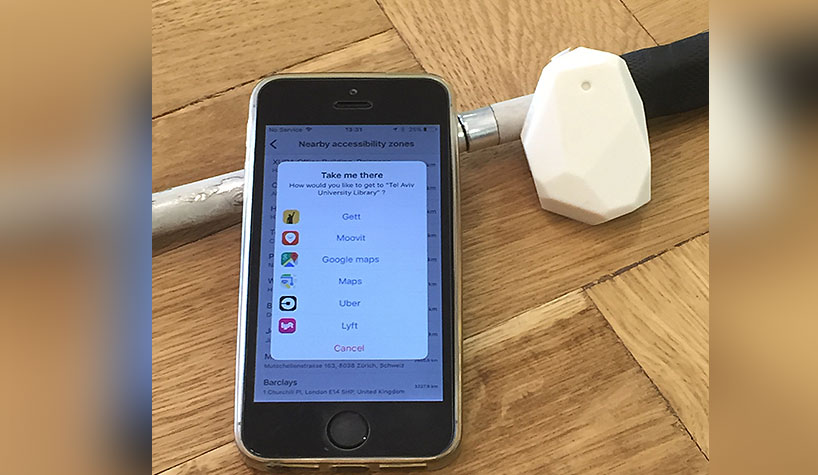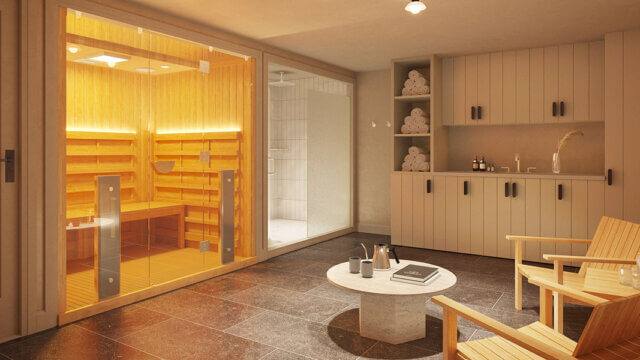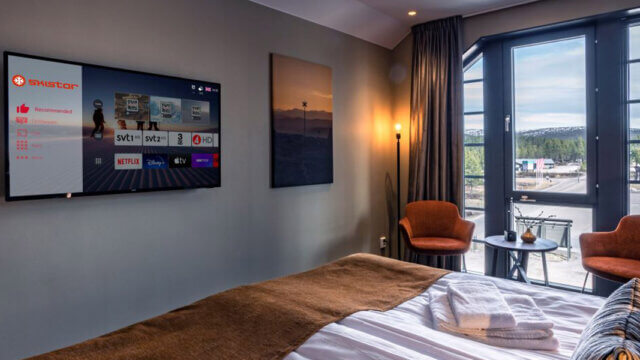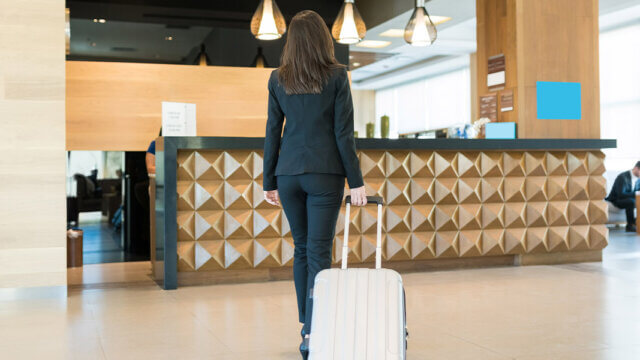SAN DIEGO—The Keating Hotel here has just added capability for its visually impaired guests to navigate the property easily through the use of a new app.
When guests with the RightHear app enter the property, it provides them with audio instructions to get to the reception desk: “Right after the entrance door, continue 10 feet; the reception will be to your right…”
The app was created after its co-founders, Idan Meir and Gil Elgrably, came across Apple’s iBeacon technology, which stores information in stationary devices and can be accessed by smartphones when nearby via Bluetooth. “After hearing about this new technology, they started to think about how they can use it to have a bigger impact on the world,” said Sam Levinson, a representative of the company. “After doing some research, they soon discovered that there was no good solution on the market that helps individuals orient themselves in indoor spaces. They immediately knew that the iBeacon technology would be a perfect solution to this problem and started to develop what today is globally known as the RightHear solution.”
Beacons (Bluetooth low-energy sensors) are installed throughout the property that enable playback of voice information in locations where they are installed. They contain a tiny, smart, self-powered sensor that uses Bluetooth technology to detect whenever a user is nearby. They can typically be found near entrances, restrooms, elevators, stairs or any other points of interest in the venues.
The RightHear smartphone application reads the information to the user, allowing them to orient themselves and gives the user the option to call for assistance, if needed. All of the instructions are controlled on an online dashboard interface that is updated by the location’s management.
Adding the RightHear technology to a property is simple, according to the company. The venue needs to be mapped out to pinpoint prime locations where the beacons will be most effectively used. “The way this works is as simple as it sounds,” said Levinson. “We ask the venue to send us a blueprint or map of their venue and our expert mappers create what they believe to be the perfect accessible venue.”
After the number of beacons are chosen, RightHear will install them or the hotel can do it themselves. From there, the beacons are programmed with the information needed using the dashboard interface.
In addition to helping visually impaired guests navigate the hotels, the app’s call-for-assistance button allows the user to call the reception desk and order room service. “Another feature that hotels enjoy is the ability to add support for multiple languages to the beacons,” said Levinson. “This allows for hotels to not only be accessible to disabled individuals, but also to individuals facing language barriers.”
Management at The Keating decided to add the RightHear after Meir and Elgrably stayed at the property. “I was approached by Mr. Meir and his business partner during their stay here at The Keating with their product, and I loved the idea and I loved the concept for The Keating,” said Jeff Owens, operations manager of the hotel. “I was able to roll it out in a couple of months from Mr. Meir’s departure.”
While The Keating is the first hotel in North America to use the app, the platform has been installed in more than 600 locations around the globe, including shopping malls, universities, restaurants, fast-food chains, museums, hospitals, office and municipality buildings, airports, theaters and supermarkets. “Our solution is currently available in several hotels across Israel,” said Levinson. “Some of our hotels include the Inbal Hotel Jerusalem, the InterContinental David Tel Aviv, the Leonardo Inn Dead Sea and the West Lagoon Resort Netanya.”
Feedback from users and venues has been positive. “Our users are both excited and grateful that we are granting them the independence they deserve in venues of all types,” said Levinson. “From grocery shopping to a weekend getaway, our users are now able to complete tasks never imaginable before on their own. Our venues share the same excitement as our users but from the other end—their venues are now available to individuals who previously felt that they were off limits because of their disability.”




